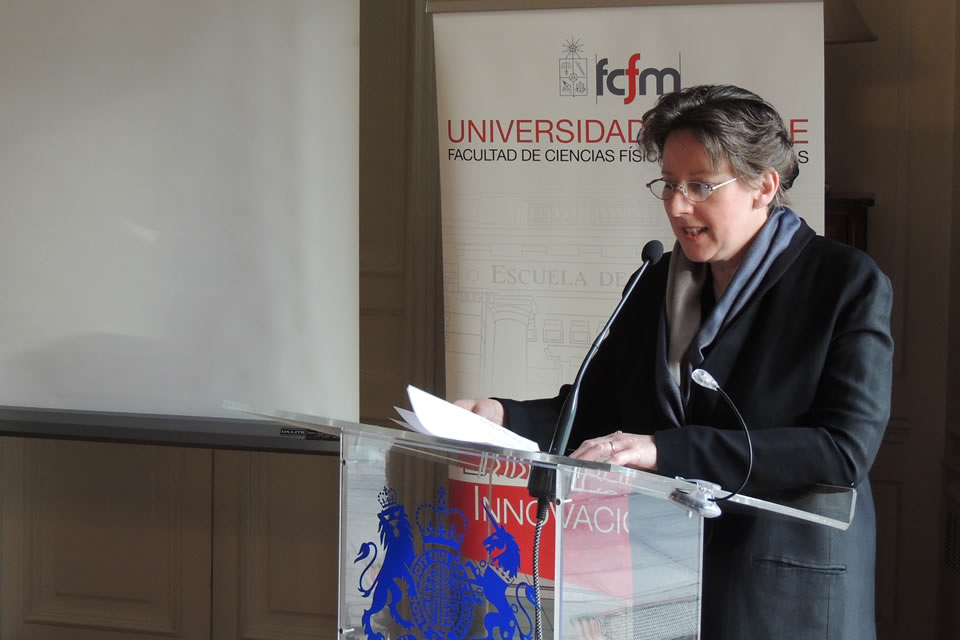Building stronger UK-Chile sustainable construction links
Speech by HMA Fiona Clouder on the occasion of the signing of a Memorandum of Understanding between BRE UK and the University of Chile.

First I would like to take a moment to reflect on the terrible events that have occurred in London. There has been a terrible fire in an apartment block in London. The cause is still not known, but the incident illustrates the importance of standards, structures and materials within the construction sector. Our thoughts are with all of those affected; the lives and homes lost and a community devastated. Here in Chile we are all aware of the terrible consequences caused by fires.
Today we are here to talk about sustainable and innovative construction. Over the last 15 years the UK has made substantial investment in energy and low carbon technology research, development and demonstration. This has created a strong foundation for low carbon solutions in buildings, electricity networks, renewable energy, waste and transport. In the big picture, these low carbon solutions are also paving the way for smarter cities and improved living environments. New advancements and innovative practices in sustainable construction are vital to the growth of future low carbon smart cities.
In the UK, practices in driving innovation in sustainable construction are never ending. Some examples include the development of innovation parks that pilot cutting-edge sustainable building designs and the application of efficient building systems via UK Building Information Modelling (BIM) technologies.
The UK’s BRE Environmental Assessment Method (BREEAM) began in 1990 as the world’s first sustainability assessment method for buildings. The method’s focus on sustainable value and adaptability to local and climatic conditions has led to BREEAM becoming an international best practice. Since 1990, the BREEAM has been adapted and applied in over 70 countries and used to certify over 500,000 BREEAM developments globally.
From 2013-2014 we were able to adapt the best practices, lessons learned and experiences related to sustainable construction in the UK to the Chilean context through the project “Code for Sustainable Homes in Chile”. This project, supported by the British Embassy Santiago’s Prosperity Fund, was implemented by BRE in collaboration with the Chilean Ministry of Housing. Through this collaboration we were able to develop the standards and references for Chile’s first sustainable construction code.
It is great to see that the results and collaborations from this project remain sustainable not only through the Ministry of Housing’s sustainable construction strategy, but also through new collaboration opportunities set out between BRE and IDIEM from the University of Chile in the MOU that will be signed today.
We look forward to the development of new low carbon solutions, research links and innovative products for the sustainable construction sector in Chile as a result of this MOU collaboration and future work between IDIEM, BRE and a number of key local stakeholders as part of the upcoming technological innovation centre on sustainable construction.